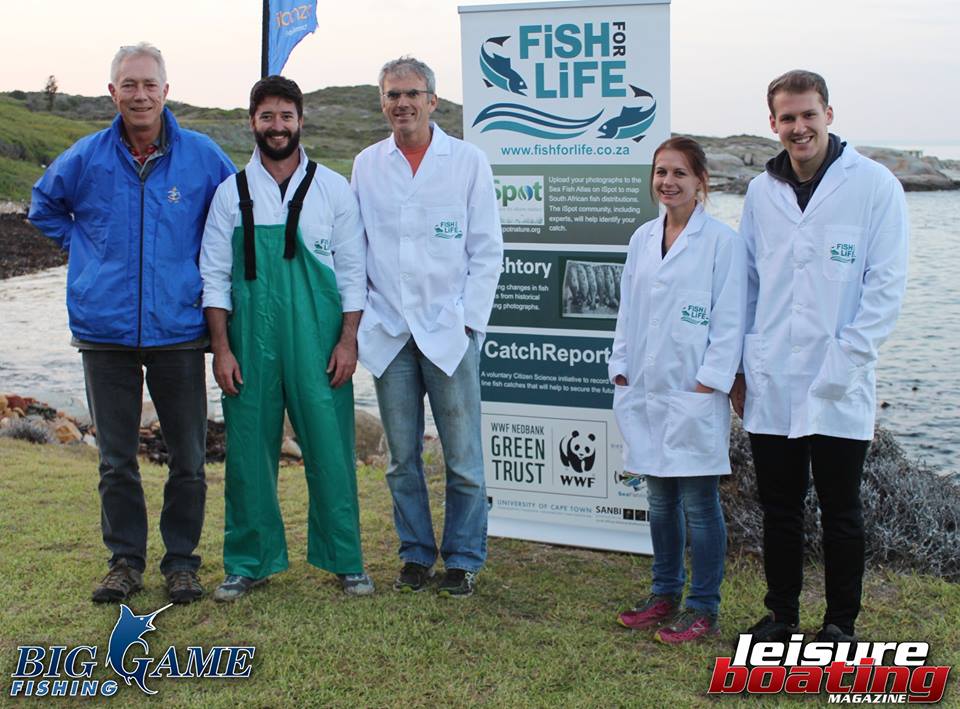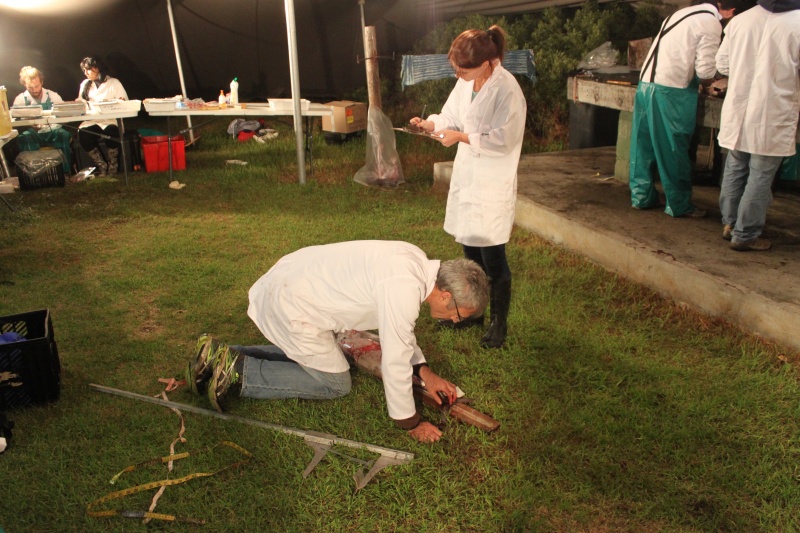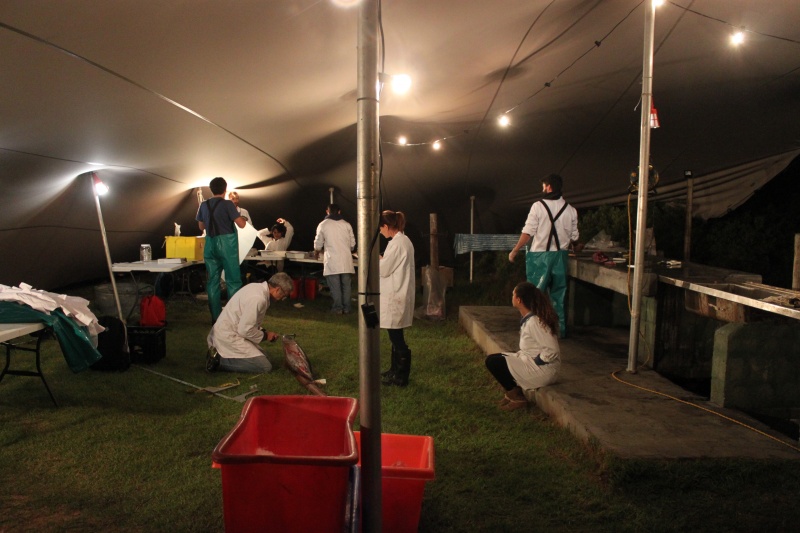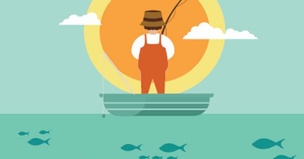FishforLife at the 2016 SADSAA Tuna Nationals
24 May 2016

The CatchReport team, Colin, Greg, Malcolm and Denham recently attended the South African Deep Sea Angling Association (SADSAA) 2016 Tuna Nationals, hosted by the Cape Boat and Ski-boat Club in Rumbly Bay, Simon’s Town from the 9th to 14th May. During the course of the week the team were hard at work collecting valuable data from each fish caught and the anglers that caught them. This was no small task, over the four fishing days of the competition 242 tuna were processed. Each individual fish had to be weighed and measured and the angler’s name, team and province, as well as the boat number and grid area where the fish was caught recorded.
Longfin tuna Thunnus alalunga were the most abundant species caught, with 224 individuals recorded and the heaviest individual fish weighing in at 32 kg. Seventeen yellowfin tuna Thunnus albacares were recorded with the heaviest at 78.95 kg and one bigeye tuna Thunnus obesus weighing 23.4 kg. An 80.9 kg bigeye was also caught but unfortunately had to be disqualified from the competition because a shark took a bite of it while it was being landed. In total the team weighted over three tons of tuna throughout the competition!
Prof. Colin Attwood measures a tuna at the SADSAA Tuna Nationals 2016 (Photo: Greg Pengelly).
Prof. Colin Attwood’s scientific team from the University of Cape Town (UCT) also dissected 69 of these tuna, one big eye, eight yellowfin and sixty albacore. During this process liver and muscle tissue samples were taken for further analysis. Each fish was sexed and its gonads examined to see the maturity level of the fish. The stomachs were also sampled to determine what the fish had been preying upon and the gills removed to search for parasites back in the lab. Otoliths, which can help to tell the age of each fish and determine how fast they grow, were taken from the yellowfin and some of the albacore. All of the tuna were then donated to charities so they would not go to waste.
The scientific team from UCT hard at work gathering biological data (Pic: Greg Pengelly).
All the data collected will feed straight into CatchReport where it will be used to monitor competition catches along South Africa’s coastline. For more information on how CatchReport works have a look at the webpage here. Data from the WPDSAA Inshore West league held 21st/22nd May in False Bay will also be uploaded to Catch Report shortly as will competition data from Shore and Underwater fishing competitions that are participating in the FishforLife initiative. The next major inter-club offshore competition where data will be collected is the WPDSAA “October Comp” in late October this year.
For more information on Tuna Nationals 2016 get your hands on the June/July issue of Leisure Boating Magazine which will be featuring a full length article on the competition. You can visit their webpage for subscription details here.

